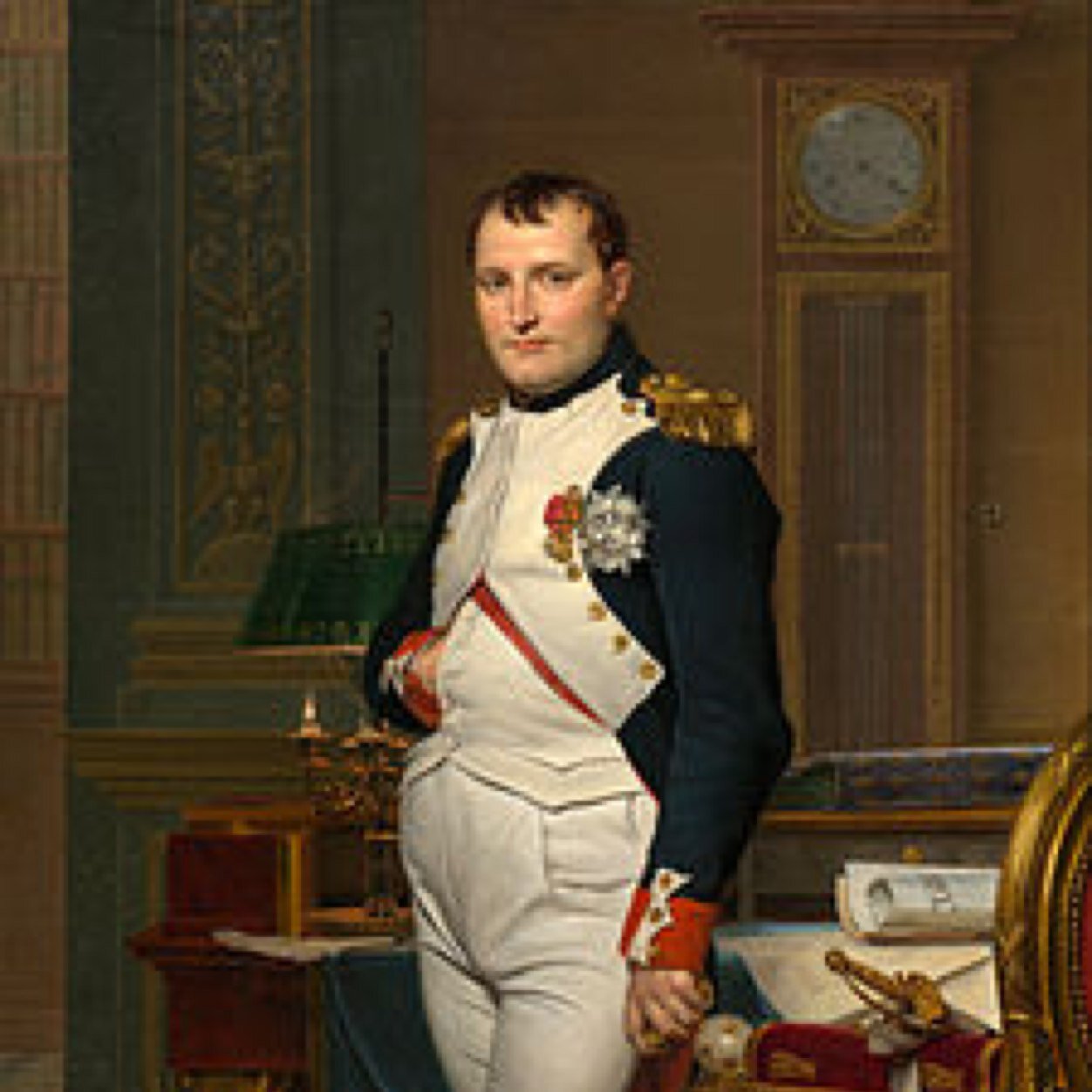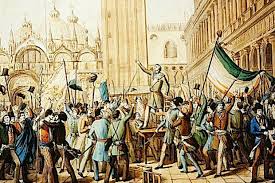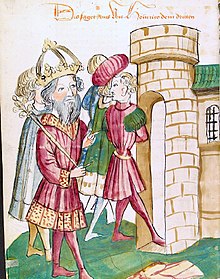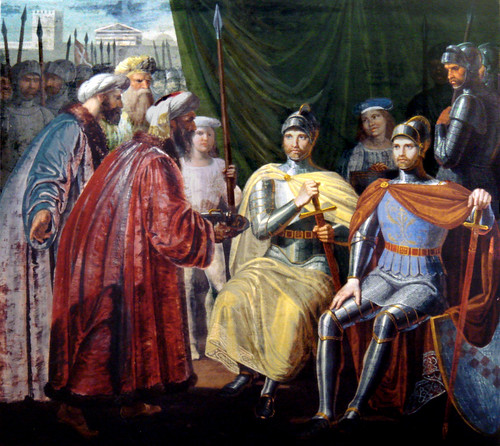Revolutions of 1848
Following on from the defeat of Napoleon which brought a French Revolutionary and Napoleonic period of turmoil which had lasted from 1789-1815 to a close, the conservatively inclined alliance of powers...
https://t.co/upJFcD367E
Norman conquest of southern Italy
The Norman conquest lasted from 999 to 1139, involving many battles and independent conquerors. In 1130 these territories in southern Italy united as the Kingdom of Sicily...
https://t.co/gyFa3aW11e
French Revolution - Role of women
Historians since the late 20th century have debated how women shared in the French Revolution and what long-term impact it had on French women. Women had no political rights in pre-Revolutionary France...
https://t.co/xS7Yo2UweY…
Charles Martel, hammer of the Franks
Charles Martel, (born c. 688—died October 22, 741, Quierzy-sur-Oise [France]), mayor of the palace of Austrasia (the eastern part of the Frankish kingdom) from 715 to 741. He reunited and ruled...
https://t.co/vJUJ1mu0Lv
A medieval “most honourable feast”
Chiquart begins his treatise on cookery with notes on how to organise a “most honourable feast”. These notes at once open a window on the mundane matters on which the success or failure of such an event depended.
https://t.co/ENR11o2EMT
Magic and Sacrilege in the Court of Louis XIV of France
In spite of the devout Catholicism of Louis XIV’s court, many courtiers attempted to practice magic, often with the intent of harming others, with the assistance of a sorceress or priest...
https://t.co/IiLEtcviY6
Powder and Patch in the English 17th Century
So many 17th century portraits feature women with smooth, perfectly white complexions. The paint used in the portraits was similar to the makeup used by the subjects, both being comprised of white lead.
https://t.co/OwnNBNAkxL
Elba and Napoleon’s 100 days
The defeated Napoleon wrote one last letter to Josephine, in which he said,"Never forget him who has never forgotten you and will never forget you." On April 20, 1814, the dethroned Emperor left France for the isle of Elba
https://t.co/RieByEUCWB
Norman conquest of southern Italy
The Norman conquest of southern Italy lasted from 999 to 1139, involving many battles and independent conquerors. In 1130 these territories in southern Italy united as the Kingdom of Sicily...
https://t.co/gyFa3aW11e
Lies, Spies, and Unsung Heroes: Espionage and the British Empire
Disreputable and dishonest
In the past, spying was a murky hidden business, and spies despised as liars who sold their honour. The British Secret Service was not founded...
https://t.co/jE5DF2IM23




















